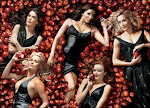A couple wake up and go downstairs to breakfast. They do not realise they are being watched by terrorists. They leave the house to go to work, and as soon as they are out of sight, the terrorists enter their house. While they are raiding the house, the couple's car returns down the road because the man forgot his mobile. As he enters the house, leaving his wife in the car, the terrorists hide in the upstairs bedroom. He goes upstairs and is knocked out by the terrorists and taken hostage, unbeknownst to his wife who is still waiting in the car. She then twigs that something is wrong, and calls 999, who swiftly arrive and save her husband.
Most stories end happily because people like the feelgood feeling that everything worked out in the end. They like closure, so that a disruption is rectified.
The Spooks beginning feels like the beginning of a narrative because there is a disruption which hasn't been resolved.
The ordinary morning that is suddenly threatened is a standard narrative because it suggests that it is realistic, that the victims could, like the audience, have normal lives until this disruption. The audience are encouraged to take sides so that they feel empathy for some characters and become more involved and care about the welfare of the "goodies". The binary oppositions established are good and bad, victims and villains, colour of skin etc.
I'm not really sure how to answer this...?
What are the different narrative structures associated with the following TV drama forms?
Do they conform to Todorov’s and Lévi-Strauss’s outlines of narrative structures, which both
have a fundamentally ideological significance?
Single drama/film: Margaret; - Todorov's classic narrative pattern
Two-nighter: Trial & Retribution; Todorov's classic narrative pattern spread out.
Soap (continuing drama): EastEnders;
Serial: Bleak House;
Anthology series (selfcontained episodes, each based on different characters): Skins;
Longform series drama: Lost;
Longform series drama with some narrative experimentation: 24
Friday, March 6, 2009
Homework
Subscribe to:
Post Comments (Atom)





0 comments:
Post a Comment